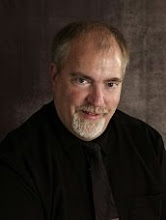What's the difference?

In the song “Where were you,” Alan Jackson wrote,
I'm just a singer of simple songs
I'm not a real political man
I watch CNN but I'm not sure I can tell you
The difference in Iraq and Iran
But I know Jesus and I talk to God
And I remember this from when I was young
Faith, Hope and Love are some good things He gave us
And the greatest is Love.
Written in 2001, this song illustrates a “September 10” mindset about the Middle East. These days, one would assume that most people do understand the difference between Iraq and Iran. We have troops in Iraq. We don’t have troops in Iran. Yet. Over the weekend, Iran seized 15 British sailors in Iraqi waters, sparking additional tension in the Persian Gulf region. Presidential candidate John McCain believes that Britain needs to take decisive action. Iran has already defied all diplomatic efforts to get that rogue nation to cease development of uranium enrichment, a necessary precondition of building nuclear weapons. And, of course, the professional peace activist crowd presumes that President Bush is the one itching for yet another war, even though it is clear that Iran is already supplying weapons to the “insurgents” (terrorists) in Iraq.
Iran has a long history of being a thorn in the United States’ side. President Reagan was inaugurated in 1981 on the very day that the year-long Iranian hostage crisis ended. Most Americans who lived through it have a very long memory of the humiliation we endured at the hands of the Ayatollah Khomeini. Iran and Iraq fought an eight-year war, during which it was difficult for the US to take sides, especially with Saddam Hussein in charge in Iraq. And the same sectarian issues that have been going on for centuries are still a major source of trouble both in Iraq and in Iran today.
Iran is a Shiite nation. 65% of Iraq is Shiite. The rest is Sunni, with a small smattering of Nestorian and Catholic Christians included. Most of the Arab world is Sunni. During Saddam Hussein’s rule, Shiites were routinely persecuted, tortured, maimed and killed, in order to safeguard Saddam’s reign of terror. Now that the Shiites have a majority in the new Iraqi parliament, it is feared that they will attempt to use their position of power to oppress the Sunni minority. Whenever people talk about a “civil war” in Iraq, it is less to do with geography and more to do with religion.
So now to paraphrase Alan Jackson’s hit song, are you sure you can tell the difference in Iraq and Iran? Do you know the difference between the Shia and the Sunni? One group (Sunni) believed the true successors to Muhammad were the caliphs, chosen from the prophet’s close associates; the other (Shi’a) believe that Muhammad’s son-in-law was the rightful leader of Islam. Is this a classic case of making a mountain out of a molehill, or is it really serious enough to threaten the peace and security of a region, if not the entire world?
In a sense, this may be a classic case of a difference in political philosophy. The Sunni method of choosing the prophet’s successor seems to be more democratic than the hereditary monarchy form favored by the Shi’a. Is that why there are at least some secular republics and democracies among Sunni Muslims, and why the Shi’a are the great opponents to democracy in the post-Saddam Iraq? We may be tempted to shake our heads in disbelief that such a petty issue could be worth going to war over, but consider this: the Roman Catholic and Eastern Orthodox churches, both Christian, not only split over the issue of primacy (is the pope or the patriarch of Constantinople the head of the Christian church, and the basis for their respective claims), but declared the other to be excommunicated and condemned to hell. Catholics and Protestants fought religious wars for two centuries before the relatively modern idea of “tolerance” appeared to be more rational than a “convert to my religion or die” approach. Would Hindus say that the difference between Jews and Christians are as insignificant as those between Sunni and Shia, since we both hold to the same commandments, worship the same God, only Christians believe that Jesus is the Messiah, and Jews are awaiting the Messiah to come?
Or do we ever catch ourselves labeling one type of Christian group, belief, or practice as being “ not really Christian?” Rumor has it that our music teacher set off quite a debate in choir class by strongly asserting that “Christian Screamo” is a contradiction in terms, and that there is nothing Christian about something you can’t understand. When are we right to reject something as contrary to Scripture (and therefore sinful) and when are we wrong to label something as sinful that is actually a matter of Christian freedom? For example, some people are downright defiant in their insistence that Jesus doesn’t care if you wear jeans to church, but would freak out if they saw their clergyman wearing a gown and vestments.
By the way, the connection between the first part of the blog and the last part is that, to an outsider, the rabid hatred and violence between Shia and Sunni is incomprehensible. Is the same true about the issues that divide followers of Christ?





